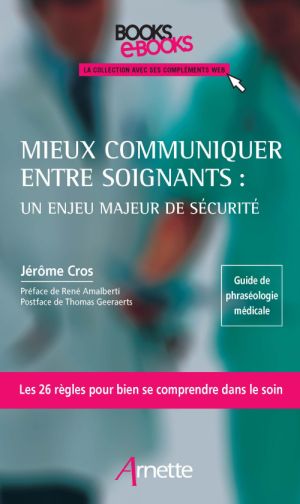Healthcare simulation is now an essential lever for improving the quality and safety of care. However, the integration of human factors in simulation training is still emerging, even though these skills are recognized as essential for improving the reliability and performance of care.
In a context where patient safety and quality of care are major issues, this book responds to a growing need for trainers and healthcare professionals to improve their skills. Drawing on knowledge of human factors and proven tools in various high-risk fields, the authors offer keys to structuring learning and developing essential skills such as communication, decision-making, leadership and teamwork.
Designed as a practical guide, this book helps trainers and healthcare professionals integrate human factors into the design and facilitation of simulation sessions, from the scenario to the debriefing. It is aimed at caregivers, support staff and, more broadly, anyone involved in simulation-based teaching. Its ambition is to promote the integration of human factors through (and in) simulation and to provide long-term support for the evolution of healthcare practices.
An indispensable work for developing practices and transforming health training.
François Jaulin est médecin, spécialisé en anesthésie-réanimation et médecine aérospatiale. Il a cofondé Facteurs Humains en Santé (facteurshumainsensante.org) et a contribué à l’élaboration des premières recommandations de pratiques professionnelles sur les Facteurs Humains en Situations Critiques en 2022, en collaboration avec la SFAR, et à l’ouvrage collectif Facteurs Humains en Santé en 2023, chez Arnette, avec une soixantaine d’experts..
François Lecomte est médecin, spécialisé en médecine d'urgence et médecine de catastrophe au service des urgences-SMUR de l’Hôpital Cochin-Hôtel Dieu, Faculté de Santé - Université de Paris (UFR de Médecine). Il est vice president de la Société Francophone de Simulation en Santé. Acteur de la formation en simulation depuis plus de quinze ans, il a participé à la création de deux DU basés sur la simulation, il intervient comme formateur dans des zones géographiques et des contextes culturels très variés.

